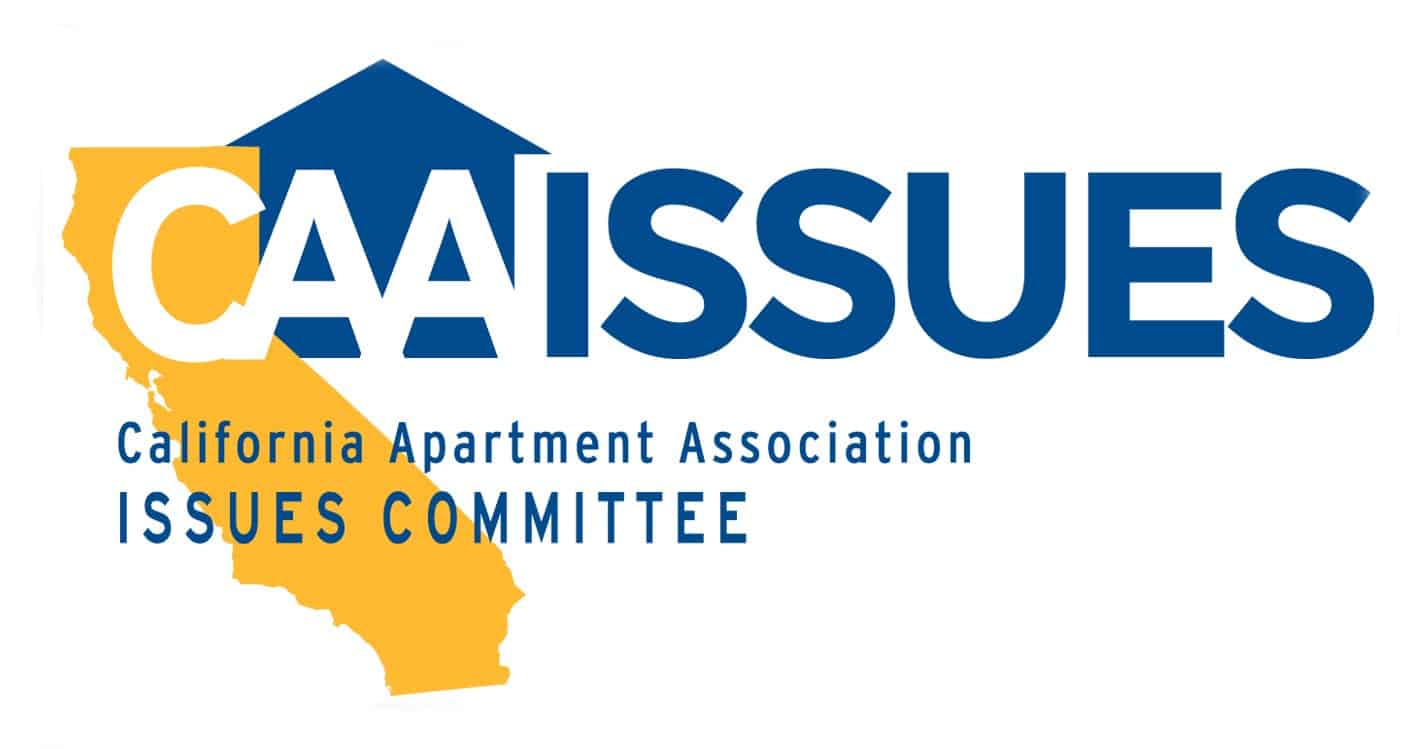In the legislative arena, 2014 brought plenty of victories for the California Apartment Association.
Over the past year, CAA fought some hard battles to move bills out of the Legislature and onto the governor’s desk. For the most part, Gov. Jerry Brown agreed with CAA in 2014, signing a number of bills that will help further the success of the rental housing industry. Brown also signed a couple of bills that triggered CAA’s opposition.
Read on to find out how laws borne out of the 2014 legislative session will affect you and your business.
Signed by the governor

AB 2747 (Assembly Judiciary Committee) – Electronic Signatures – CAA Position: Support/Sponsor
Responding to inconsistent interpretations of the electronic signature law, CAA sponsored provisions of this omnibus bill to ensure that rental property owners and tenants can continue to electronically sign leases and rental agreements that reference security deposits and security deposit law. The debate surrounded existing statute, which implied that any references to security deposits within a lease or rental agreement made that contract ineligible for electronic signatures. This new law deletes references to security deposit law and makes clear that lease contracts can be signed electronically.
AB 2451 (D-Daly) – Water Submeters – CAA Position: Support/Sponsor
This law, co-sponsored by the California Apartment Association and the Utility Management and Conservation Association, is a response to the challenges rental property owners face in California when obtaining water submeters for their properties. The law does the following:
- Allows submeters to be tested in one county and used in another county.
- Allows approved submeters to be stockpiled for a period of time, and installed when needed.
- Assures that testing fees are allocated to the county where the submeters are tested.
- Clarifies that submeters are “placed in service” when they are installed and operating.
- Prohibits the destruction of submeters by county officials when they fail initial tests.
AB 2494 (D-Cooley) – Frivolous Lawsuits – CAA Position: Support
This law authorizes a trial court to order a party, the party’s attorney, or both to pay reasonable expenses, including attorneys’ fees, incurred by another party as a result of bad-faith actions or tactics that are frivolous or solely intended to cause unnecessary delay. The law allows sanctions for egregious behavior when a party shows that not only was the action objectively unreasonable, but that the person had an improper motive.
AB 2256 (D-Garcia) – Sheriffs: Service of Process – CAA Position: Support
This law clarifies a deputy sheriff’s authority to access a gated community to serve documents such as an unlawful-detainer complaint and a writ on a tenant. It increases some sheriff’s fees, which haven’t increased in over 10 years, for the service of various documents, including tenant lockouts.
AB 2561 (D-Bradford) – Gardens: Residential Rental Property – CAA Position: Neutral
This law specifically provides that a tenant in a building with one or two units may participate in personal agriculture in portable containers (approved by the landlord) in the tenant’s private area. The landlord may require the tenant to enter into a written contract, agreeing to pay for any excess water and waste collection bills arising from the tenant’s personal agriculture activities. To ensure the tenant’s compliance with the agreement, the landlord may periodically inspect any area where the tenant is engaging in personal agriculture.
CAA article about this bill
AB 319 (D-Campos) – Domestic Violence – CAA Position: Support
This law prohibits a local government from requiring a landlord to terminate a tenancy or fail to renew a tenancy based upon an act of domestic violence against a tenant or a tenant’s household member.
AB 1513 (D-Fox) – Trespass: Squatters – CAA Position: Support
This law creates a pilot project that provides an expedited process to move alleged squatters out of one to four unit properties in the cities of Palmdale and Lancaster in the county of Los Angeles and the city of Ukiah in the county of Mendocino.
AB 2565 (D-Muratsuchi) – Electric Vehicle Charging Stations – CAA Position: Neutral
This law requires that for any residential rental agreement entered into after July 1, 2015, a landlord must allow a tenant, who makes a request in writing, to install an electric vehicle charging station so long as, among other things, the installation complies with all laws, the tenant pays for all costs of the installation and utility costs to charge the vehicle, and maintains general liability insurance. The requirements under the law do not apply to residential rental properties where:
- Electric vehicle charging stations already exist for lessees in a ratio that is equal to or greater than 10 percent of the designated parking spaces.
- Parking is not provided as part of the lease agreement.
- A property where there are fewer than five parking spaces.
- A dwelling that is subject to the residential rent control ordinance.
CAA article about this bill, including Issue Insight
SB 1167 (D-Hueso) – Vector Control – CAA Position: Neutral
This law requires that rodents be eliminated from rental property and that remedial measures be taken to eliminate contributing conditions that allowed rodents to enter the units. The law also requires, where the enforcement agency determines that the building is substandard due to insects, vermin, or rodent infestation, that the agency must order the owner of the building to remediate conditions that contributed to the infestation.
AB 2310 (D-Ridley-Thomas) and AB 2485 (D-Dickinson) – Unlawful Detainer: Weapons and Ammunition and Illegal Drugs – CAA Position: Support
These laws created by AB 2310 and AB 2485 brought back state-authorized local programs that had ended several years ago. The laws again authorize a city prosecutor or city attorney in the counties of Los Angeles, San Diego, Sacramento and Alameda to file an action for unlawful detainer at the property owner’s request to abate a nuisance caused by illegal conduct involving unlawful weapons, ammunition or illegal drugs. The laws allow the action to be based on an arrest report or other law enforcement report.
AB 2109 (D-Daly) – Parcel Taxes – CAA Position: Support
This law requires the state to compile a report on local parcel taxes that have been levied, to report how much revenue has been generated by those taxes and to indicate what programs have benefited from the revenue. The intent of this law is to help California lawmakers and voters make more informed decisions about the need for more parcel taxes, to improve accountability and oversight of those funds, and to ensure that funds are spent effectively and in the manner approved by the voters.
AB 2282 (D-Gatto) – Recycled Water – CAA Position: Support
This law mandates that the state adopt mandatory building standards for the installation of systems for recycled water. These standards will apply to new commercial and public buildings and single and multifamily homes that are near existing or planned water-recycling facilities.
CAA article about this bill
AB 2222 (D-Nazarian) – Affordable Housing: Density Bonus Law – CAA Position: Neutral
This new law prohibits a building project applicant from receiving a density bonus unless the proposed housing development project would, at a minimum, maintain the number and proportion of affordable housing units within the proposed development that existed at any time in the past five years. The law also increases the required affordability from 30 years to 55 years. The bill was amended in August to exempt projects in which the developer/builder requested the density bonus prior to January 1, 2015. The bill amendments also lowered the number of units required to remain affordable.
SB 674 (D-Corbett) – CEQA: Infill and Mixed Use Projects – CAA Position: Support
This new law modifies California’s Environmental Quality Act (CEQA) law, creating an exemption for larger projects so they can avoid the cumbersome paperwork and review process required under CEQA. Under current law, exemptions include:
- Affordable agricultural housing projects of not more than 45 units within a city, or 20 units within an agricultural zone, on a site not more than five acres in size
- Affordable urban housing projects not more than 100 units on a site not more than five acres in size.
- Urban infill housing projects of not more than 100 units on a site not more than four acres in size within one-half mile of a major transit stop. Among other criteria, retail uses may not exceed 15 percent of the total floor area of these projects.
The current 15 percent retail limit confines the use of this exemption. An increase to 25 percent of the total building square footage in the new lawwill allow a four-story project to meet the CEQA exemption requirements.
SB 1171 (D-Hueso) – Leasehold Interest: Disclosures – CAA Position: Neutral
For all commercial leasing situations, this law requires a specific form that the listing or selling agent must use to disclose to the buyer/lessee and seller/lessor whether he or she is acting as the buyer’s/lessor’s agent exclusively, the seller’s/lessor’s agent exclusively, or as a dual agent representing both the buyer/lessee and seller/lessor. Current law requires this same form in the for-sale single family home situation. As initially introduced, the bill would have required these disclosures in the leasing of rental units. At the request of CAA, that wording was removed from the bill.
AB 1897 (D-Hernandez) – Labor: Client Liability – CAA Position: Oppose
This law imposes strict liability on any individual or entity that obtains or uses subcontractors from a labor firm to perform work. The law mandates that the individual or entity that subcontracts for labor will be liable for the subcontractor’s failure to abide by labor laws and regulations, particularly if they fail to (1) pay legal wages to their employees; (2) pay worker’s compensation coverage; and (3) abide by occupational health and safety requirements. This liability is extended to the individual or contracting entity even if they do not contribute to any alleged violations, did not have control over working conditions of the contracted employees, did not control the manner of payment to those contractors, did not dictate the contracted employees’ schedules, or even control the work environment of those employees.
AB 2617 (D-Weber) – Arbitration Agreements – CAA Position: Oppose
This law prohibits an employer’s enforcement of arbitration agreements or per-litigation settlement agreements that requires employees to waive their right to pursue a civil action for the alleged violation of their civil rights.

